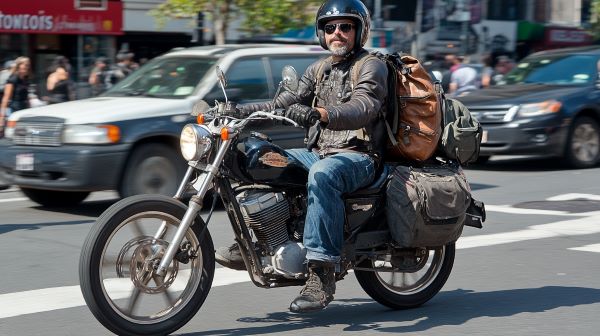Motorcycle Accident

Motorcycle accidents can be incredibly overwhelming, often leading to confusion and uncertainty about what steps to take. Knowing how to protect your rights and where to seek help can make a significant difference. This guide covers everything from the immediate aftermath to understanding your legal options and securing the compensation you deserve.
Immediate Steps After a Motorcycle Accident
The actions you take immediately after a motorcycle accident are crucial. Here’s what you should do:
- Ensure Safety: Move to a safe location if you can, and assess injuries for yourself and others.
- Call Emergency Services: Report the accident to the police, regardless of how minor it seems. A report will be essential for insurance claims.
- Gather Evidence: Take photos of the scene, collect witness information, and note down the accident details.
Understanding Liability and Fault in Motorcycle Accidents
Determining fault is key to resolving legal and insurance matters:
- Assessing Fault: Police reports, witness statements, and evidence play critical roles in establishing who is at fault.
- Comparative Fault States: In some states, both parties can share fault. Understand how this can affect your claim.
- Avoiding Admission of Fault: Never admit fault at the scene; let law enforcement and insurers make that determination.
Medical Attention and Injuries from a Motorcycle Accident
Even if you feel unhurt, seeking medical attention is vital after a motorcycle accident:
- Common Injuries: Motorcycle accidents can lead to serious injuries like fractures, road rash, and head trauma.
- Documenting Injuries: Keep thorough records of medical appointments, treatments, and any symptoms that arise later.
Motorcycle Insurance Claims and Coverage
Dealing with insurance after a motorcycle accident can be complex. Here’s how to navigate it:
- Filing a Claim: Contact your insurance company promptly to report the accident and begin the claims process.
- Uninsured Drivers: If the other party doesn’t have insurance, your uninsured motorist coverage might help.
- Types of Damages: You may be able to claim for medical bills, bike repairs, lost wages, and more. Understand your policy and its coverage.
Legal Rights and Representation for an Accident
Understanding your legal rights can help protect you and ensure fair compensation:
- When to Seek Legal Advice: If you’ve sustained serious injuries or there is a dispute about fault, consulting a lawyer is wise.
- Insurance Negotiations: A lawyer can negotiate on your behalf, ensuring you don’t settle for less than what you’re entitled to.
- Partial Fault: Even if you share fault, you might still be eligible for compensation.
Compensation and Settlements
Understanding how compensation works can guide you through settlement offers:
- Types of Compensation: This includes medical expenses, bike repair costs, lost income, and pain and suffering.
- Settlement Offers: Insurance companies may offer a quick settlement. Always consult with a lawyer before accepting.
- Calculating Settlements: The amount you receive depends on factors like injury severity, fault, and long-term impacts.
Dealing with Long-Term Effects
The impact of a motorcycle accident may extend beyond the immediate aftermath:
- Ongoing Medical Care: Keep track of medical expenses, including future treatments or rehabilitation.
- Lost Earning Capacity: If you’re unable to return to work, you may be eligible for compensation for lost earning potential.
- Long-Term Legal Considerations: Serious or permanent injuries may require more detailed legal action. Seek advice from a personal injury attorney.
Motorcycle Repairs and Property Damage
Getting your motorcycle repaired after an accident is part of the recovery process:
- Choosing a Repair Shop: You typically have the right to choose your preferred repair facility.
- Total Loss: If the repair costs exceed the value of the motorcycle, it may be declared a total loss. Your insurance will compensate for its market value.
- Rental Vehicles: If you need transportation while your bike is being repaired, check if your policy covers a rental vehicle.
Emotional and Psychological Impact
Motorcycle accidents can leave lasting emotional effects:
- Coping with Trauma: Anxiety or PTSD is common after a severe accident. Don’t hesitate to seek professional support if needed.
- Support Resources: Counseling and support groups can provide emotional help as you recover.
Preventing Future Motorcycle Accidents
Taking proactive steps can reduce your risk of future accidents:
- Common Causes: Distracted drivers, weather conditions, and road hazards are leading causes of motorcycle accidents. Stay alert and cautious.
- Safety Tips: Always wear appropriate safety gear, obey traffic laws, and ride defensively to minimize risks.